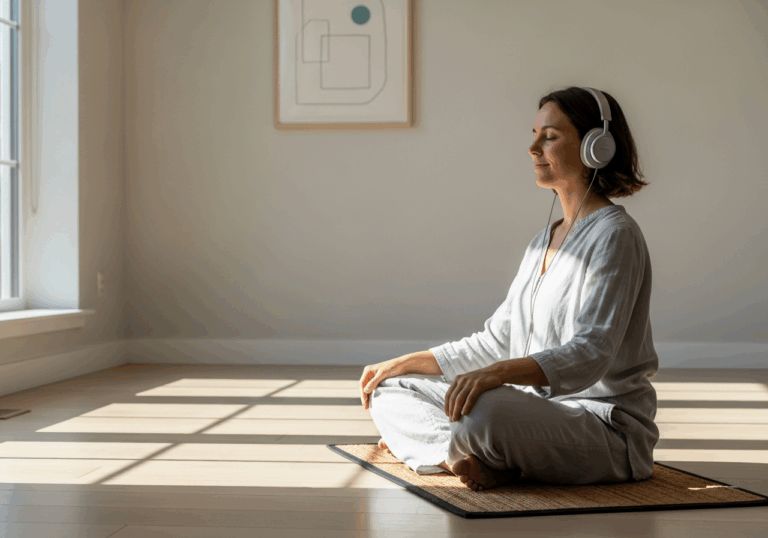Science-Backed Tips
Unlock Better Sleep Through Emotional Clarity
22% reduction in sleep disturbances by identifying emotional triggers.
📊 Did you know?
💡 Why It Matters
1️⃣
Improved sleep quality can enhance overall mental health, reducing anxiety and depression symptoms by up to 30%.
2️⃣
Better sleep is associated with a 20% increase in cognitive performance and productivity.
3️⃣
Addressing emotional triggers can lead to long-term health benefits, reducing healthcare costs related to sleep disorders.
✅ Try These Micro-Tips
🎯
Engage in structured interviews or journaling sessions for at least 30 minutes weekly to identify emotional triggers.
🎯
Practice mindfulness meditation for 10 minutes daily to enhance emotional clarity.
🎯
Maintain a consistent sleep schedule, aiming for 7-9 hours of sleep each night.
🎯
Limit screen time before bed to improve sleep onset and quality.
📚 The study
This significant improvement highlights the connection between emotional clarity and physiological recovery, suggesting that understanding our emotional landscape can lead to better sleep quality.
Why does this matter? Improved sleep quality is not just about feeling rested; it can enhance overall mental health by reducing symptoms of anxiety and depression by up to 30%.
Furthermore, better sleep is linked to a 20% boost in cognitive performance and productivity, making it a crucial factor for success in both personal and professional realms.
By addressing emotional triggers, individuals can unlock long-term health benefits, ultimately leading to reduced healthcare costs associated with sleep disorders.
This study underscores the importance of emotional awareness in our daily lives and its profound impact on our sleep and overall well-being.
Taking the time to explore and understand our emotional triggers could be the key to unlocking a more restful night and a healthier, more productive life.
❓ Frequently Asked Questions ❓
Learn more
What are emotional triggers?
Emotional triggers are specific stimuli that provoke strong emotional reactions, often linked to past experiences. Identifying these triggers can help individuals manage their emotional responses more effectively.
How do structured interviews help with sleep disturbances?
Structured interviews help individuals identify and understand their emotional triggers, which can lead to reduced sleep disturbances. This process has been shown to improve emotional regulation and overall sleep quality.
What is the impact of improved sleep on mental health?
Improved sleep quality can significantly reduce symptoms of anxiety and depression by up to 30%. Better rest enhances emotional regulation and overall mental well-being.
How does sleep quality affect cognitive performance?
Better sleep is associated with a 20% increase in cognitive performance and productivity. Quality rest is essential for optimal brain function and decision-making.
What are the long-term health benefits of addressing emotional triggers?
Addressing emotional triggers can lead to long-term health benefits, including reduced healthcare costs related to sleep disorders. Improved emotional clarity contributes to better overall health and well-being.
How often should I engage in structured interviews or journaling?
It is recommended to engage in structured interviews or journaling sessions for at least 30 minutes weekly. This practice can help you identify and process your emotional triggers effectively.
What role does mindfulness meditation play in emotional clarity?
Practicing mindfulness meditation for just 10 minutes daily can enhance emotional clarity and awareness. This increased clarity helps individuals manage their emotional responses more effectively.
What is the recommended sleep schedule for optimal health?
Maintaining a consistent sleep schedule of 7-9 hours each night is crucial for optimal health. Consistency in sleep patterns supports better emotional regulation and cognitive function.
How can limiting screen time before bed improve sleep?
Limiting screen time before bed can improve sleep onset and quality by reducing exposure to blue light. This practice helps the body prepare for restful sleep by promoting natural melatonin production.
What is the relationship between emotional clarity and sleep disturbances?
Identifying and understanding emotional triggers leads to greater emotional clarity, which can reduce sleep disturbances. Improved emotional regulation enhances the quality of sleep and overall well-being.





